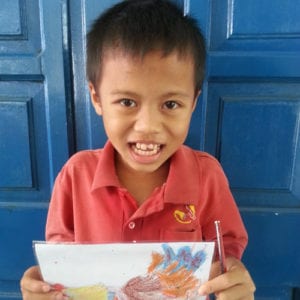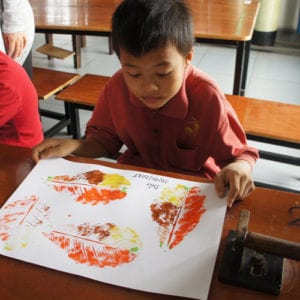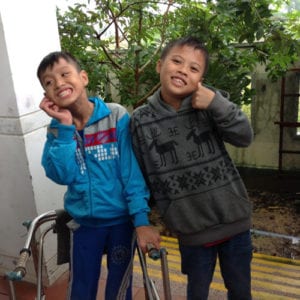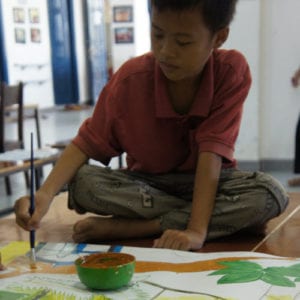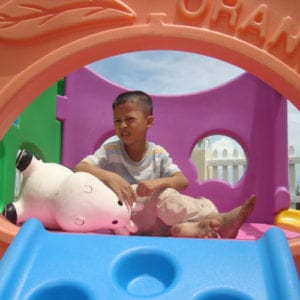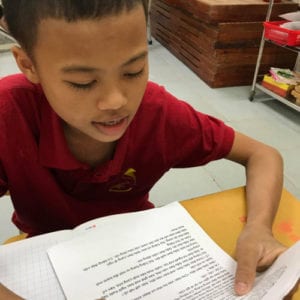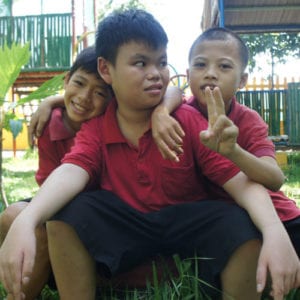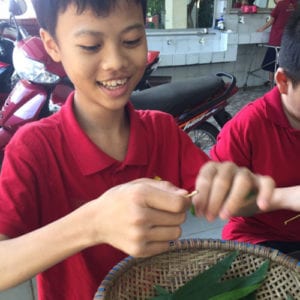Dinh looked like all the other kids in the village, so his parents could not understand why he did not act like them. He would not pay attention to anything they said; barely spoke, and when he did, often mimicked what they said in strange voices; he would not play with the other children and barely engaged with them, his family. As a poor farming family with a lot on their plate already, Dinh’s parents struggled to make things work with their son but eventually, it became too difficult and they made the difficult decision to put him in the local orphanage. His aunty, a tough, single farming woman, was not having this. She went and got her nephew out of the orphanage and took him to live with her. She got him enrolled in the local primary school. But life with Dinh was just as difficult for her. Neither could the school could not cope with Dinh.. He could understand and keep up with all the lessons but his behavior was so strange. They limited him to coming to the school for two hours a day, and when he was there, he often got slaps and punishments for his willful and ‘naughty’ behavior.
As a child with High Functioning Autism (also known as Asperger’s), Dinh was suffering the lack of understanding that many individuals like him are subject to. He was physically strong and healthy, he could do complex sums and draw beautiful pictures, he could talk, albeit often strangely; how could anything be wrong with him apart from him being naughty? When his aunty brought him to the Kianh Foundation School when he was eight years old, he was very low in self-esteem and confidence. It was our job to build that back up.
Autism Spectrum Disorder (ASD) is a disorder that affects communication, behavior and social interaction. Thinking, learning, problem-solving and perception occurs differently for these individuals and can be extremely gifted or extremely challenged. They often have sensory input issues and can be affected by strong noises, strong lights and certain kind of motion or touch.
Having a regular daily routine at the school really worked for Dinh. He slowly settled into the school routine and enjoyed the praise he received for his academic and art work, and the fact that he was not chastised for the voices he spoke with or for wandering around when sitting in one place became too much. Dinh’s repetition of what he heard around him is called Echolalia and is symptomatic in many cases of Autism. As time passed, he was given responsibilities such as being the school bell monitor and taking the classroom register. Although he still had many ways of expressing himself, he was able to have more meaningful engagements with those around him and for the first time in his life, made some friends. He also sensed the responsibility that came when he was moved into the mainstream class at the Kianh School, where many of the students had Cerebral Palsy. As a physically able child, he realized that he could help his classmates in certain areas, and in return, they gave him conversation and friendship.
Dinh is independent in many things these days, and is visibly content. He excels in the vocational projects at the school where there is a set routine to follow, (making paper bags to replace plastic ones, growing beansprouts to sell at a market) and can guide others to do this well. Although he still lives with his aunty, he is also reunited with his parents and siblings, and it is his mother’s joy that he can come home from school and tell her about his day.

